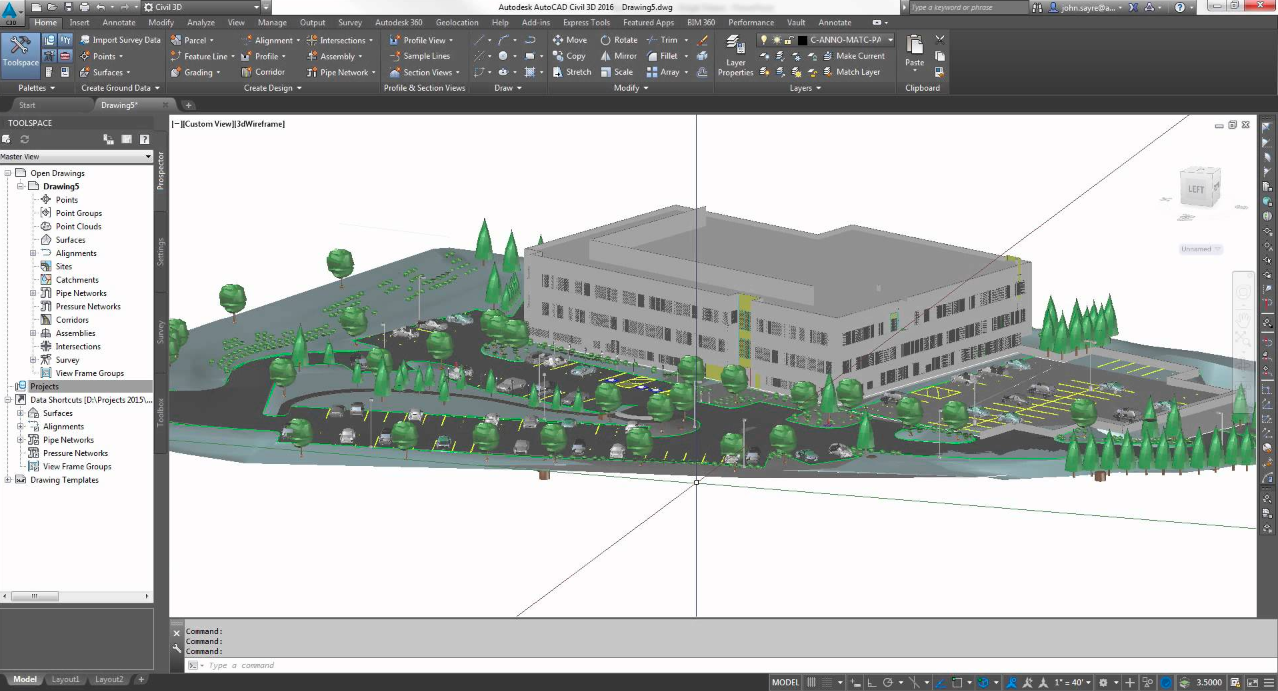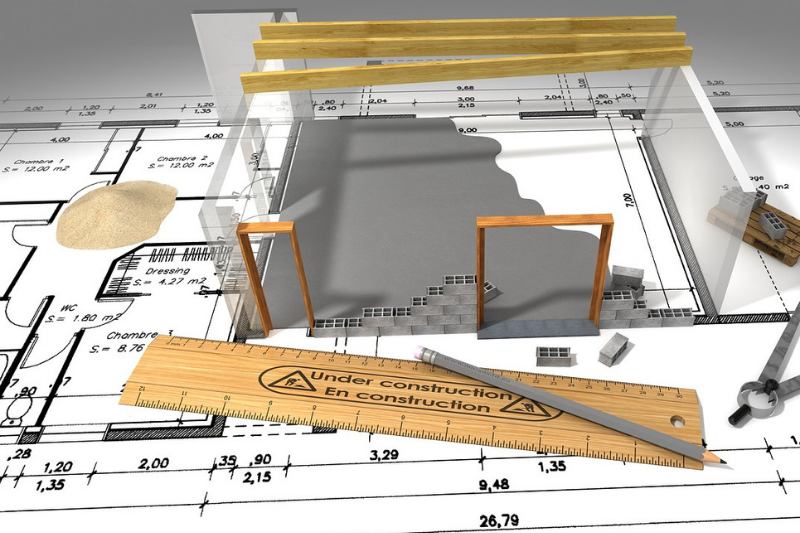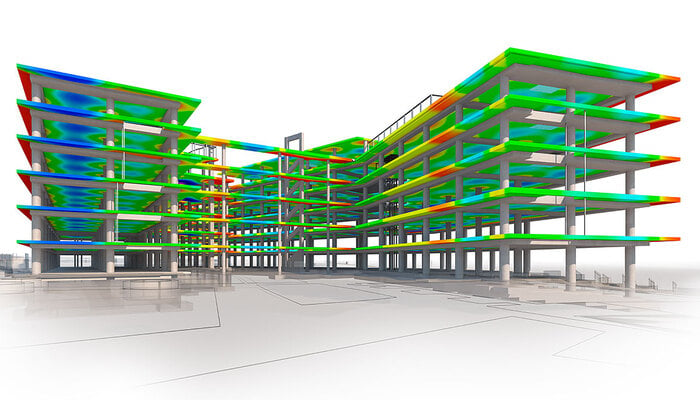Top 10 Civil Engineering Software Courses in India (2025)

Table of Contents
The field of civil engineering has evolved far beyond hand drafting and manual calculations.
Thanks to the rapid adoption of technology in the construction industry, professionals have now embraced a world where every line drawn and every number counted resonates with a pulse of digitalisation. So, if you are a civil engineer in today’s time and age, it is vital for you to upskill and attain expertise in new-age software, tools, and processes.
What are the Benefits of Software for Civil Engineers?
By integrating software into civil engineering practices, professionals can effectively and comprehensively visualise and simulate their designs. This not only fosters creativity but also ensures that potential design flaws are detected and rectified before any construction begins. Such precision in design minimises the likelihood of errors, ultimately leading to safer and more durable infrastructures.
Additionally, the use of software streamlines the collaboration process among multidisciplinary teams. With cloud-based project management tools and collaborative platforms, civil engineers, architects, and contractors can seamlessly communicate and share vital information in real time. This instant exchange of data reduces miscommunications and accelerates project timelines.
What are the Various Civil Engineering Software?
The field of civil engineering is constantly evolving and so are the associated software. So, there is software for everything from the stage of planning to construction and project management. Let’s have a look at the various software for civil engineers below.
- Softwares For Drafting
1. AutoCAD
Developed by Autodesk, AutoCAD is a computer-aided design (CAD) software program that has firmly established itself in the AEC (Architecture, Engineering, and Construction) industry. All the stakeholders in a project can rely on AutoCAD to create anything and everything, ranging from infrastructure designs and 3D models to base maps and architectural plans.
2. Civil 3D
Similar to AutoCAD, Civil 3D also falls under AutoDesk's CAD software umbrella. Mainly used to create three-dimensional models of buildings, bridges, roads, and other infrastructure, the software is also very useful for creating two-dimensional drawings. Its ability to extend beyond the third dimension makes it more adept at producing detailed sections and elevations.
- Software for 3D Modelling
1. Revit
Revit is a Building Information Modeling (BIM) software that acts as the cumulation of the whole dataset of a project. It allows its users to design, analyse, model, and document in real time on one single easily accessible file. This helps maintain a consistent quality of work from design up to completion.
2. 3Ds Max
3Ds Max is a software based on the fundamentals of polygonal modelling that uses vertices, edges, and faces to create detailed and complex structures with ease. This software empowers architects and civil engineers to better understand the project planning process through its immersive visualisation abilities.
Also Read : Top 20 FAQs on BIM for Civil Engineers
- Software for Structural Analysis
1. STAAD Pr
Structural Analysis and Designing Program (STAAD Pro) is one of the most popular and widely used software for conducting structural analysis across the globe. It allows civil engineers to design and analyse different combinations of structures, helping them find the best layout by automating the tasks and removing the need for the tedious process of long manual labour.
2. SAP 2000
Structural Analysis Program (SAP2000) is a comprehensive civil engineering software used for conducting the analysis and improving the design efficiency of structural systems. It performs both static and dynamic analyses, supporting linear or nonlinear approaches, to design structures using AASHTO, ACI, and AISC building codes.
- Software For Project Management
1. Wrike
Wrike is a customizable project management software-as-a-service (SaaS) product, that helps guide the completion of a project by keeping track of all schedules, submissions, deadlines, and other systems in check. The best part about the software is the ease with which it can be accessed while allowing project stakeholders to collaborate on the cloud.
2. Smartsheet
Smartsheet is another software-as-a-service (SaaS) product that eases collaboration, helps assign tasks, tracks progress, and manages calendars, all within the tabular user interface that could be easily customised and automated to scale projects on one single platform.
Top 10 Civil Engineering Software Courses in 2023
Learning software can help civil engineers gain a competitive edge over their peers, positioning them better in the job market. It can also allow them to be proficient at their work and create a versatile portfolio that helps grow their career. So, let’s have a look at the most promising civil engineering software courses that professionals can enrol for.
1. BIM Professional Course for Civil Engineers by Novatr
Duration: 7 months
Fee: INR 2,45,000
Certification: Yes
Placement Assistance: Yes
Mode of Learning: Online
Novatr’s BIM Professional Course for Civil Engineers is one of the most immersive civil engineering software courses. It is designed to equip professionals with the skills and knowledge needed to effectively use BIM throughout a project.
The course covers 10+ BIM software including Revit, Tekla, and STAAD.pro. This ensures that students gain practical knowledge of the tools widely used in the industry. The curriculum also includes a live capstone project, providing students with the opportunity to apply their skills in a real-world context and gain hands-on experience in creating accurate BIM models.
A key highlight of the course is its focus on personalised training through live mentoring, one-on-one support, and industry-relevant projects. This approach ensures that students not only gain a theoretical understanding of BIM but also develop the practical skills needed to apply this knowledge in their professional lives.
2. AutoCAD for Civil Engineers by Udemy
Duration: 8.5 hours
Fee: INR 499
Certification: Yes
Placement Assistance: No
Mode of Learning: Online
This AutoCAD course is specifically designed to cater to civil and structural engineers. Designed by an experienced civil engineer, this beginner-friendly course covers AutoCAD's working environment, file handling, object creation, editing, and many more such features. As one of the most insightful civil engineering software courses, this program teaches the real-time application of AutoCAD by demonstrating through case studies and projects. This hands-on approach ensures that students not only understand the software but also know how to use it effectively in the profession.
Also Read : Civil Engineer to BIM Modeller: An Expert's Guide to Boost Career Growth
3. AutoDesk Civil 3D by LinkedIn Learning
Duration: 10 hours
Fee: INR. 1,850
Certification: Yes
Placement Assistance: No
Mode of Learning: Online
As one of the most comprehensive civil engineering software courses by Udemy, this program covers essential tools and features required to streamline the design and documentation of construction projects. From learning how to model precise design surfaces to efficiently managing pipe networks, this course covers it all. Participants can discover the tips, tricks, and data shortcuts of Civil 3D as they learn how to design a new residential development during the course. With real-world examples and practical insights, learners will gain the necessary skills to elevate their proficiency in AutoDesk Civil 3D, enhancing their career prospects.
4. Fusion 360 Essential Training by LinkedIn Learning
Duration: 5 hours
Fee: INR 1,850
Certification: Yes
Placement Assistance: No
Mode of Learning: Online
This Fusion 360 Essential course is taught by an industry expert and is touted as one of the most rewarding civil engineering software courses. It empowers beginners and practitioners alike, to turn their ideas into digital models that are ready to be 3D printed. While aiming to cover essential Fusion 360 features like sketching, modelling, and sculpting, the course also includes a segment on how to work with sketches, meshes, and surfaces. The educators here, try to simplify complex Fusion 360 techniques, while also crafting photorealistic renders and captivating animations.
Read: AutoCAD v/s Fusion 360: Which software should you learn in 2023?
5. AutoDesk 3Ds Max by IFS Academy
Duration: 60 hours
Fee: INR 17,000
Certification: Yes
Placement Assistance: Yes
Mode of Learning: Online and Offline
Crafted by industry experts, this tailor-made program focuses on offering a unique opportunity for the participants to excel in the world of 3D design. As a one-of-its-kind civil engineering software course, its program delivers in-depth knowledge about the workings of 3Ds Max, helping them master 3D modelling, texturing, rendering, and animation techniques. With a rich array of modules, live sessions, and hands-on projects, this project also prepares the candidates for the Autodesk Certified User (ACU) and Autodesk Certified Professional (ACP) exams, giving them an edge over others in the industry.
6. Primavera P6 by CMTI
Duration: N/A
Fee: INR 2,500
Certification: Yes
Placement Assistance: Yes
Mode of Learning: Online
The Construction Management Training Institute (CMTI) offers one of the most inclusive civil engineering software courses on Primavera P6 as a part of their Construction eLearn Course. With a focus on practical skills and industry relevance, the course consists of 52+ lessons, each of which provides a step-by-step guide to becoming proficient in this industry-standard project management software. Participants will gain a solid foundation in project planning, scheduling, and resource management. The course integrates real-world scenarios and hands-on exercises, ensuring that students can immediately apply what they learn to their projects.
Also Read : The Growing Demand for BIM Civil Engineers in Multinational Companies
7. Bentley STAAD Pro by IFS Academy
Duration: 60 hours
Fee: INR 35,000
Certification: Yes
Placement Assistance: Yes
Mode of Learning: Both
A third one on the list for IFS Academy, this time collaborating with Bentley Institute in India to offer an extensive STAAD.Pro Online Training Program. Guided by industry experts and Bentley Systems, this course equips learners with the skills needed to excel in using Bentley STAAD.Pro software. The curriculum covers a wide range of STAAD.Pro functions, from basic navigation to intricate structural design and analysis. It includes instructor-led sessions, practical assignments, real-life case studies, and hands-on projects, catering to undergraduate civil engineering students, recent engineering graduates, and those aspiring to specialise in structural engineering.
8. Revit for Structural Design by Autodesk
Duration: 23 hours
Fee: RS. 2398
Certification: Yes
Placement Assistance: No
Mode of Learning: Online
As one of the most industry-relevant civil engineering software courses, this training program helps professionals, including civil engineers, students, and technicians, learn how to analyse and design different structures. The course comprises 2 modules, covering both aspects of the software- 3D modelling and documentation. Its curriculum closely aligns with the ACU/ACP Design program. By the end of the course, participants gain a holistic understanding of structural analysis and design principles, making the courses valuable for both beginners and experienced practitioners in the field.
Also Read : How Can BIM Help Civil Engineering Firm Owners Owners
9. BIM in AEC Industry Using Revit by Skill Lync
Duration: 3 months
Fee: RS. 40,000
Certification: Yes
Placement Assistance: Yes
Mode of Learning: Online
As one of the most unique civil engineering software courses, this one offers students a solid theoretical foundation in Building Information Modeling (BIM) software as an operative tool. The project focuses on Revit as a key tool for digital modelling, focusing on architectural, structural, and MEP (mechanical, electrical, and plumbing) elements. The course integrates practical assignments and case studies to create a thoughtfully crafted syllabus with industry-aligned objectives and challenges in mind.
10. BIM-Ready + by Techno Struct Academy
Duration: 4.5 months
Fee: INR 1,70,000
Certification: Yes
Placement Assistance: Yes
Mode of Learning: Online
TechnoStruct Academy’s BIM Ready+ course is one of the most well-rounded civil engineering software courses designed to equip civil engineers with the skills needed to effectively use Building Information Modeling (BIM). The course covers a wide range of topics, including architectural and structural aspects of BIM, and uses industry-standard software tools. Learners also get the opportunity to experience end-to-end project workflows by working on real-world projects. Participants will also gain exposure to globally acceptable documentation procedures through the course.
Also Read : What Kind of BIM Skills Companies are looking in Civil Engineers
In Conclusion
With the introduction of cutting-edge technologies such as 3D printing, digital fabrication, and BIM, the field of civil engineering is fast-evolving. Therefore, staying relevant in the industry requires mastering the latest software tools and technologies. This can be achieved by signing up for civil engineering software courses that allow you to elevate your professional growth.
If you want to future-proof your career, we strongly recommend you enrol for a BIM course. It will allow you to become more collaborative, efficient, and desirable as a professional across the global market. We suggest you check out the BIM Professional Course for Civil Engineers by Novatr and start your journey of upskilling today!

 Thanks for connecting!
Thanks for connecting!

.png)




